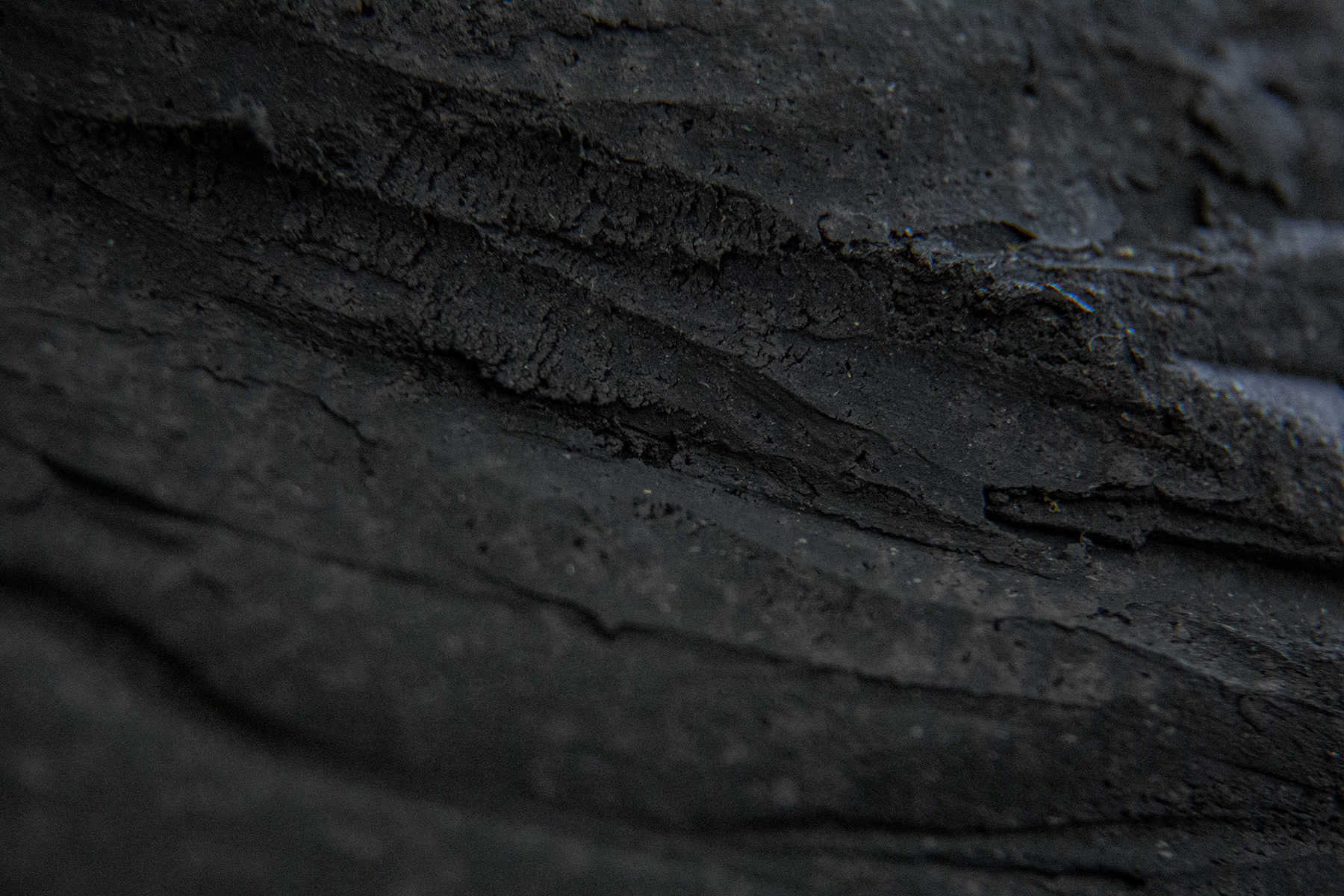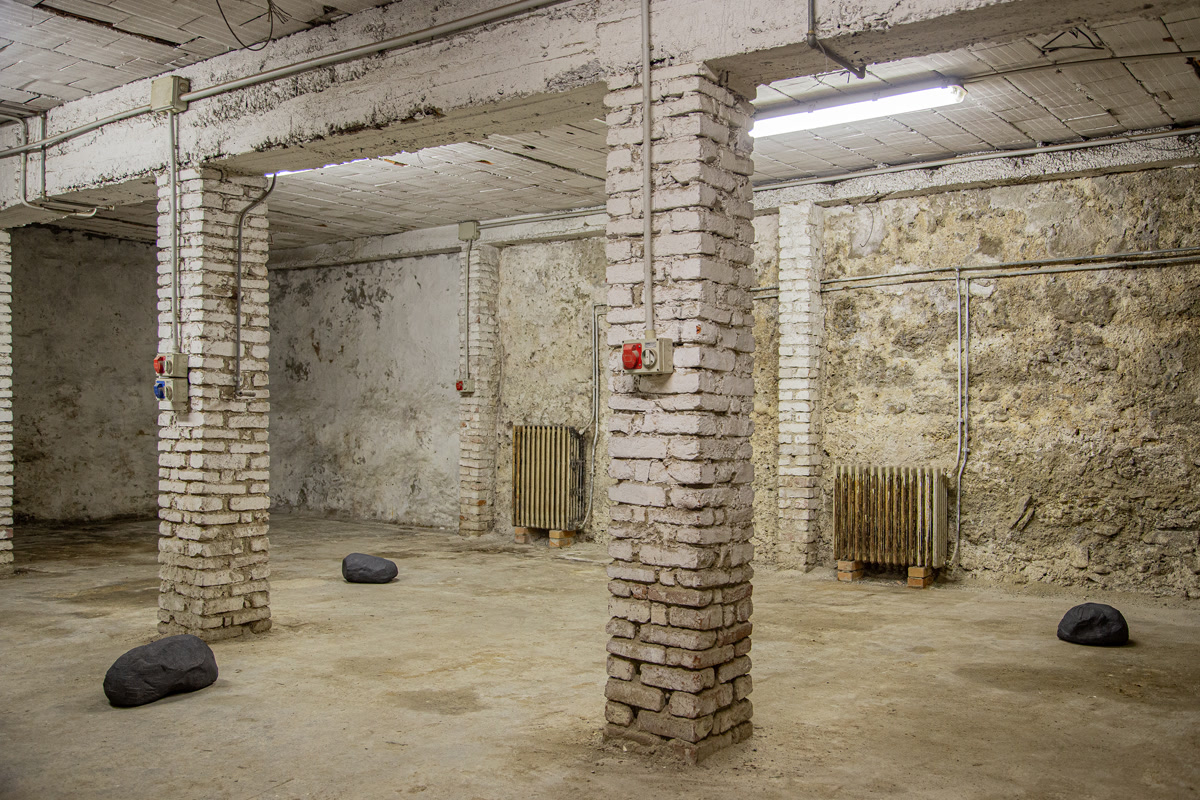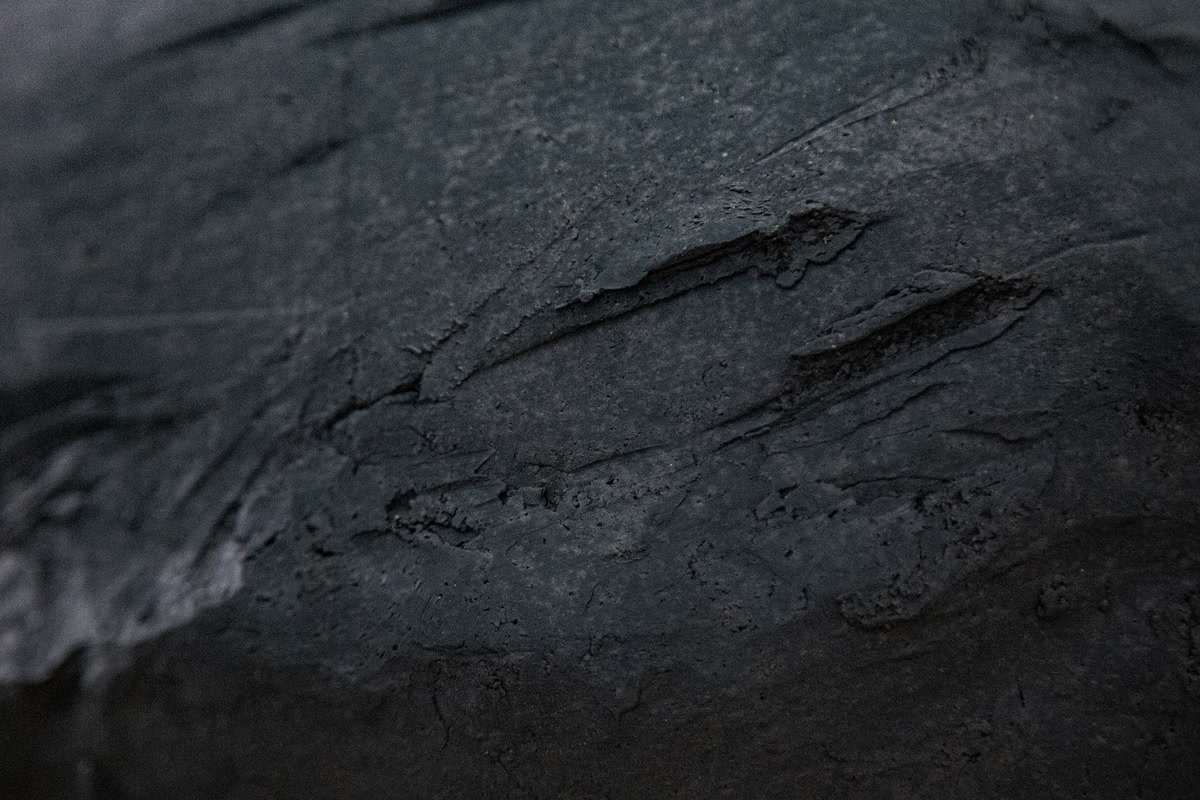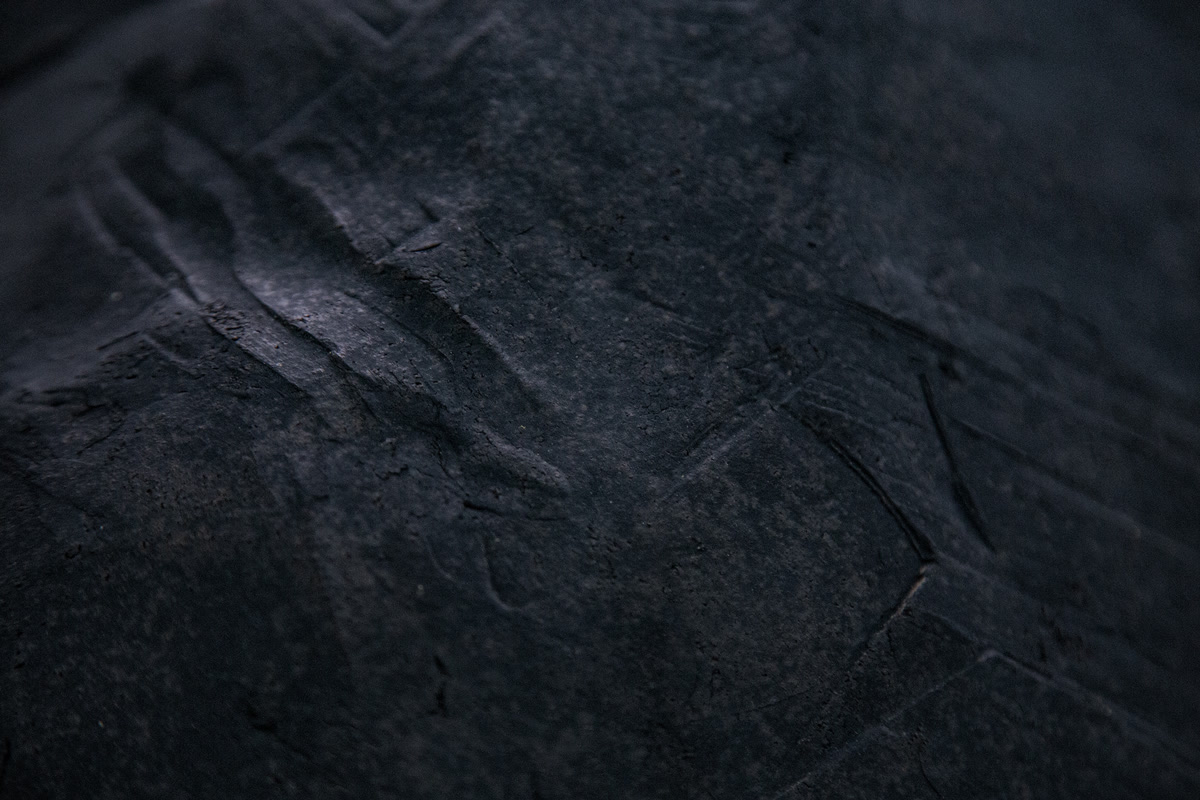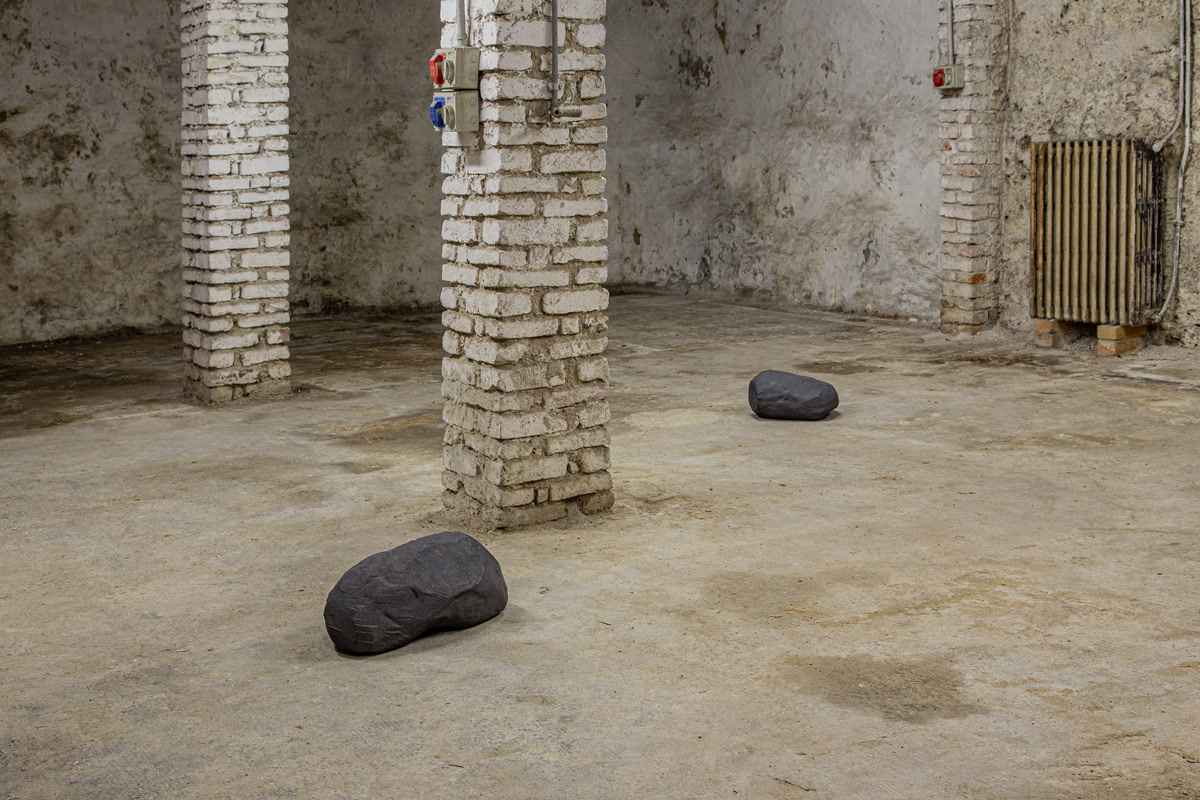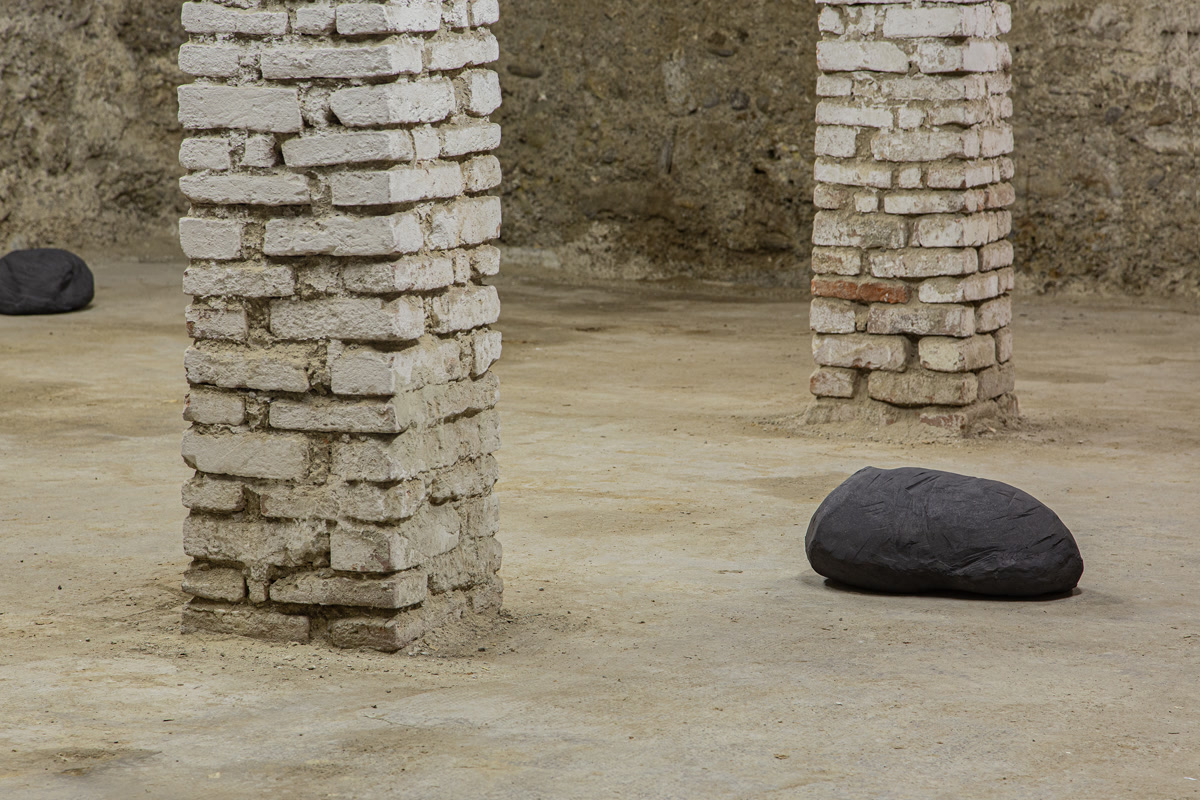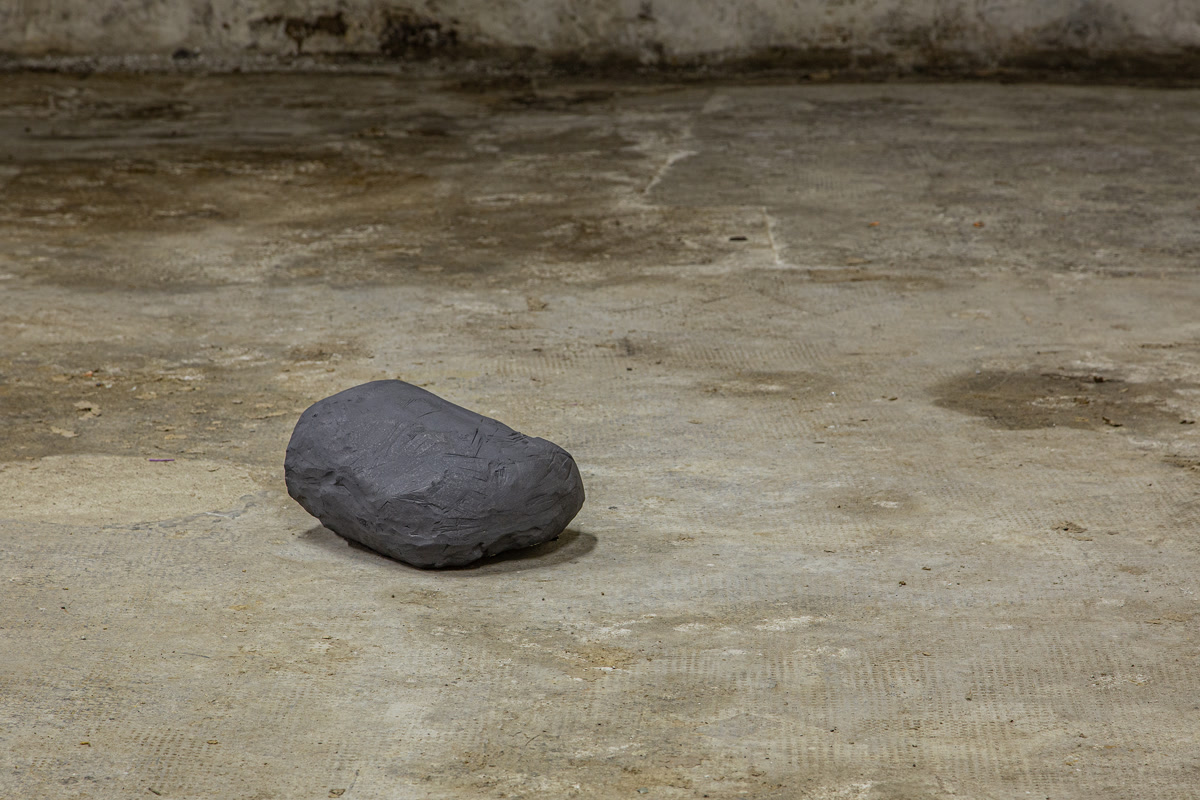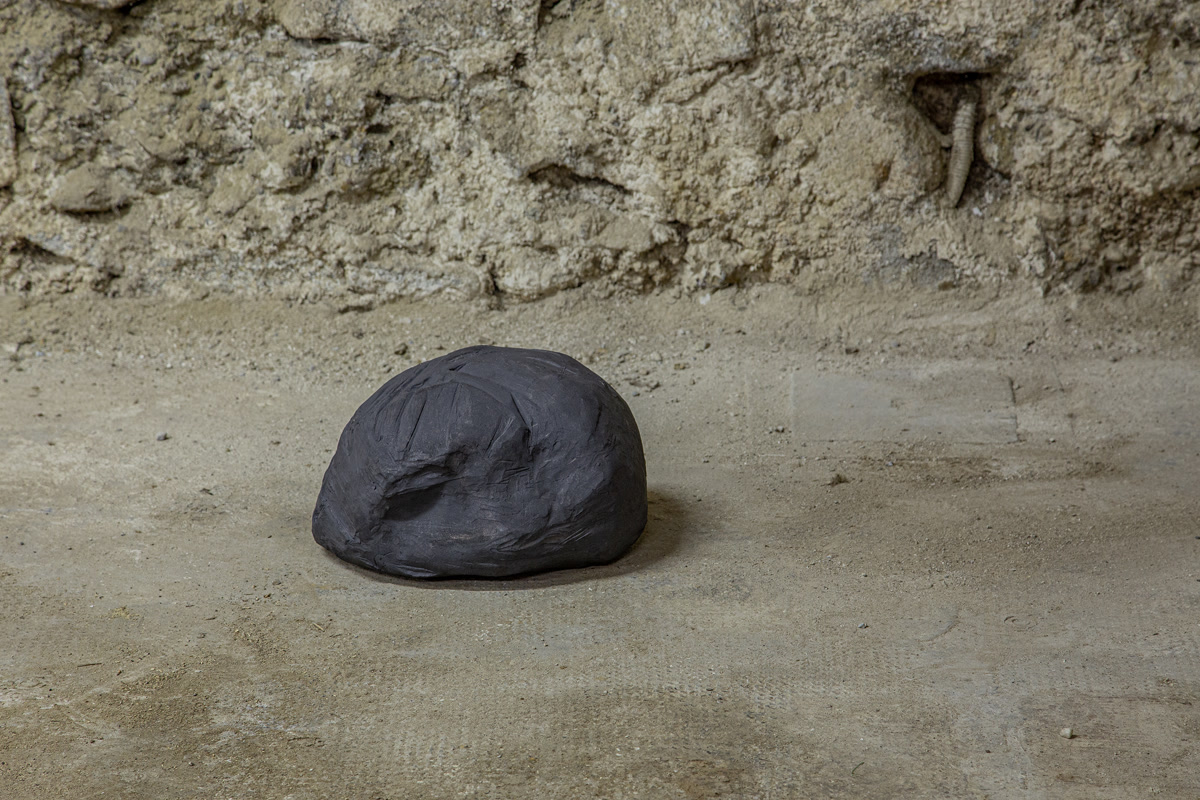Garten is an installation created collaboratively by Domenico Antonio Mancini and Matteo Cremonesi, with a contribution from Alberto Franceschini, one of the founders, alongside Renato Curcio and Mara Cagol, of the Red Brigades. The work consists of three black ceramic sculptural elements, from which the audio recording of an excerpt from Sull’avvenire delle nostre scuole (On the Future of Our Schools) by Friedrich Nietzsche is played. The voice that gives life to the sculptural ensemble and the words of the German philosopher is that of Alberto Franceschini, whose political and personal journey attests to the possibility of expressing a position opposed to the disciplining structure of the economic and labor organization of society.
At the beginning of 1872, when Nietzsche, at just twenty-seven years old, was preparing to give a series of lectures titled On the Future of Our Schools, commissioned by the "Academic Society," he had just completed The Birth of Tragedy. Aware that he had produced a decisive work, as well as taking an important step toward questioning the prevailing values and judgments of the time, he reported feeling old, exhausted, and emptied. It seemed to him that an eternity had passed since his years as a student: for a moment, Nietzsche allowed his will to rest, looking around with nostalgia and evoking the years of his student days in the hope of recovering something from that time. With this state of mind, the German philosopher prepared his lectures, in which he formulated a fierce and irreducible accusation, at the heart of which lies the opposition between Culture and State, and the unfolding of that radical enmity that exists between these two forces. In this discourse, which is still sadly relevant today, Nietzsche states that, due to the weakening and specialization of education, culture succumbs to the State, becoming a disciplining practice subordinated to the vocation of instructing not so much free thinkers, but rather obedient employees of the cultural discourse, individuals ready, then as now, to interpret their role in an economic organization.
The sculptural elements placed in the space, along with the voice of Alberto Franceschini reading Nietzsche’s words, and even the atmosphere evoked in the text itself, create an environment of pause, the garden evoked by the title of the exhibition. Garten offers a moment of respite, a space for listening from which one can reflect on the complex relationship that contrasts cultural experience with obedient language, production, and labor.
The installation is formally minimal: the viewer’s attention is not focused on the form that occupies the space, but rather on the condition that unfolds from these objects.
Project exhibited in:
Garten, Arthur Cravan Foundation, Milan, 2022
